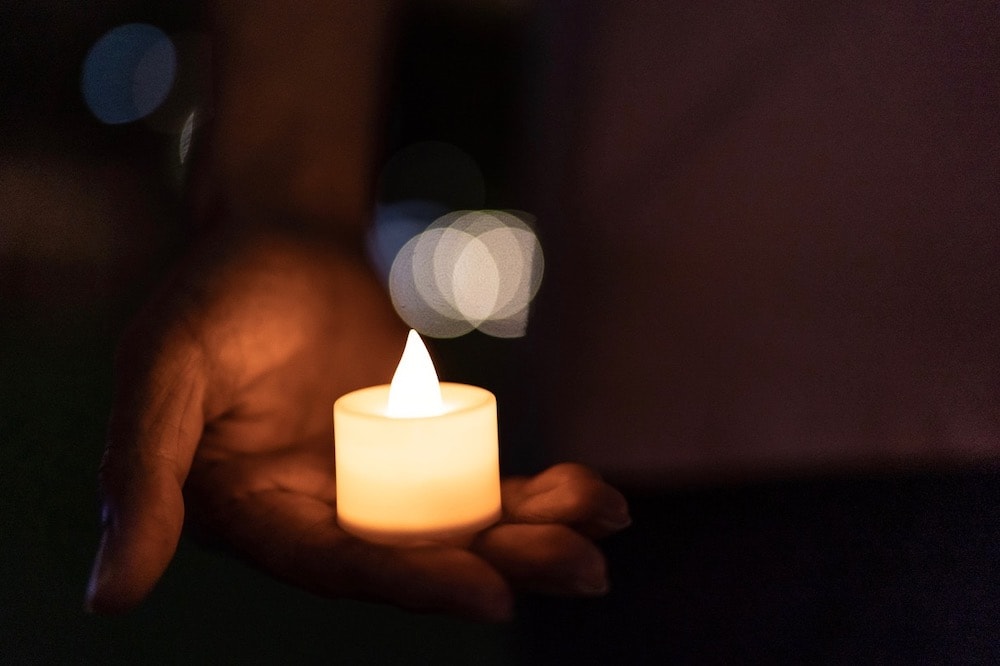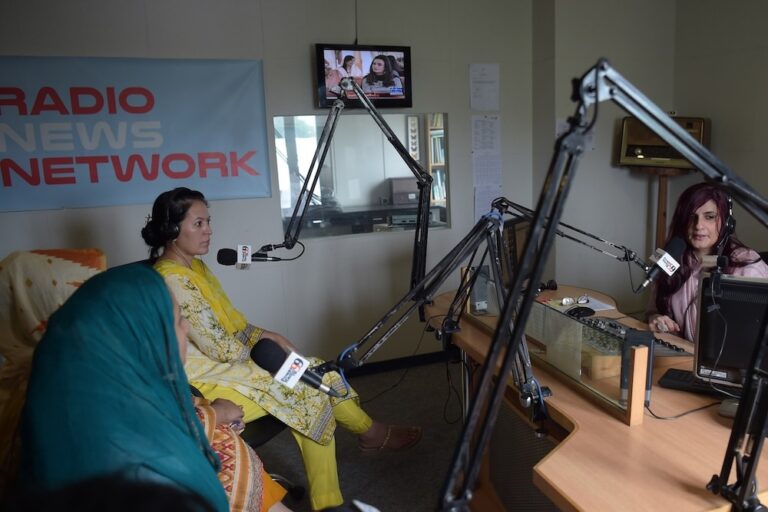June 2022 in Asia-Pacific: A free expression round up produced by IFEX's regional editor Mong Palatino, based on IFEX member reports and news from the region.
Out-going Philippine President Rodrigo Duterte’s parting gift to media: blocking of independent news websites and the shutdown order against Rappler. Journalists increasingly censored and arrested as anti-Muslim violence intensifies in India. Hong Kong welcomes its new leader selected by Beijing as it imposes more restrictions on media and pro-democracy groups.
Arrests and censorship in the Philippines
Mass arrests of activists and censorship of independent news websites marked Philippine President Rodrigo Duterte’s final month in power.
On 9 June, police in Tarlac province arrested 83 individuals engaged in peaceful activism in support of land reform. Journalists covering the activity were among those arbitrarily detained by authorities.
Meanwhile, the National Security Adviser and the National Telecommunications Commission directed telecommunication companies to block 26 websites for allegedly being affiliated with and supporting terrorism. Independent news websites Bulatlat and Pinoy Weekly were included in the list, which drew widespread criticism from local and global media watchdogs.
IFEX member the Center for Media Freedom and Responsibility (CMFR) joined several groups in condemning the government order.
“No evidence has been offered to prove the government’s claim. It is clear that the act to block access to these independent news media websites counters the Constitutionally-guaranteed freedom of the press, speech and free expression, and the public’s right to news and information. The order also effectively removes from the public sphere alternative news and views so necessary in a democracy.”
On 28 June, two days before the end of Duterte’s term, the Securities and Exchange Commission affirmed its earlier decision to revoke the certificates of incorporation of the social news site Rappler, which is headed by Nobel laureate Maria Ressa. This could be used as basis to shut down Rappler, but the company has said it will appeal the decision in the Supreme Court.
Rappler is contesting the government claim that it has violated the law on the prohibition of foreign ownership of media companies.
The Hold the Line Coalition, which includes IFEX members, urged the new Philippine government to reverse the policies that undermine media freedom.
“It is time for incoming President Ferdinand Marcos, Jr. to turn the page on media repression and immediately drop all pending charges against Ressa, her colleagues, and the Rappler media group, and take concrete measures to improve the broader media freedom climate in the country.”
Violence and shrinking civic space in India and Kashmir
Journalists and human rights defenders in India and Kashmir face worsening state intimidation amid rising anti-Muslim hate.
After the arrest of the Kashmir Walla editor Fahad Shah in February and contributor Abdul Aala Fazili in April, police summoned interim editor Yashraj Sharma for a “seditious” article published by the magazine in 2011. Sharma was only 12 years old at the time of the publication.
Authorities seem to be targeting journalists who report on the human rights situation in the territory. Journalist Shahid Tantray told The Caravan how security forces have continually harassed him and his family for his critical reports about the security forces in Kashmir.
Meanwhile, the Indian government has been actively seeking to censor social media posts by some journalists. So far, Twitter has been complying in withholding some accounts, including that of Washington Post columnist Rana Ayyub, who we featured in the February 2022 Regional Brief.
Authorities have also opened up investigations against journalists for social media posts deemed offensive to religion. Journalists Saba Naqvi and Mohammad Zubair have been accused of promoting religious enmity for Twitter posts that criticize Hindu nationalists. It led to the arrest of Zubair on 27 June for a 2018 Twitter post that “hurt religious sentiments.” Zubair, co-founder of the fact-checking website Alt News, has been previously targeted by Hindu nationalists for his reports that call out the role of officials in promoting hate against Muslims.
Aside from journalists, human rights defenders are persecuted for their work. A glaring example is the arrest of prominent human rights activist Teesta Setalvad on 25 June for seeking accountability for the 2002 mob violence in Gujarat state that left over 1,000 dead, 2500 injured, and 150,000 displaced.
This intensified crackdown against critical voices is coinciding with state-backed violence against the Muslim minority. An increasing number of mosques, houses, and businesses owned by Muslims in several cities are being demolished by authorities with impunity.
Human rights groups are calling for an end to the “systematic attack” against Muslims in India.
“The demolition of these individuals’ homes is arbitrary and undoubtedly against the law. Worst of all, it has become a symbol of hate targeted against Muslims amidst growing Islamophobia in the country,” said the Asian Forum for Human Rights and Development (FORUM-ASIA).
Media and protest restrictions in Hong Kong
As they have for the last two years, Hong Kong officials once again banned public activities commemorating the 4 June 1989 Tiananmen Massacre. Police threatened to arrest any individual joining an assembly or vigil to honour those who died in Tiananmen. No activity was held in public parks, but citizens promoted symbolic initiatives, and solidarity activities were organized outside Hong Kong.
The same restrictions have been applied in inaugurating the government of Chief Executive-elect John Lee, and the 25th anniversary of the territory’s handover to China on 1 July. It also marks the second year after the Beijing-imposed National Security Law took effect, in which it has been used to attack independent media, disband civil society groups, and detain pro-democracy leaders. At least a dozen media outlets were refused accreditation to cover the official handover celebrations. This is unusual, since media are often allowed to cover high-profile political events, but it reflects the diminished space for independent reporting in the city.
IFEX member Hong Kong Journalists Association “urges the city’s authorities to be more inclusive by accepting applications from media organisations keen to attend, so that those with a considerable readership can fulfill their duty in keeping the public informed by reporting on Hong Kong’s historic moments.”
On a positive note…
Hopes were revived in the Maldives after police arrested three men in connection with the 2014 disappearance of journalist Ahmed Rilwan and the 2017 fatal stabbing of blogger Yameen Rasheed. Will this progress finally lead to justice, after years of impunity?
Timor-Leste journalists challenged news coverage restrictions and asserted their right to question China’s State Councillor and Foreign Minister Wang Yi at a press briefing held during the minister’s visit on 4 June. What made this pushback even more extraordinary was that Wang had been able to prevent local journalists from asking their questions during his 10-day Pacific tour that began on 26 May and took him to the Solomon Islands, Kiribati, Samoa, Fiji, Tonga, Vanuatu, and Papua New Guinea.
The Chinese Embassy in Washington has announced that Bloomberg journalist Haze Fan was released on bail in January 2022. It’s not all positive, though, as she continues to face investigations on suspicion of endangering state security. She was detained in December 2020, and formally charged in July 2021.
In brief
Writers and artists groups are calling for the reversal of the death sentences handed out by Myanmar’s junta against anti-coup activists Ko Jimmy and Phyo Zayar Thaw. Ko Jimmy is part of the student movement that participated in the 1988 democracy uprising, while Phyo Zayar Thaw was a well-known hip-hop musician before joining the parliament in 2015. Both resisted the 2021 coup. The death sentence has not been used in Myanmar since 1988, and critics believe its revival reflects the escalation of the military’s “tactics of repression.”
Still with Myanmar, a new web feature by Human Rights Watch “illustrates the Myanmar authorities’ crimes against humanity of apartheid, persecution, and imprisonment that have deprived Rohingya of their liberty.” Over 135,000 Rohingya had been detained since 2012. Thousands have fled the country and are now housed in crowded shelters in Bangladesh and Malaysia.
And finally, the theme of the latest edition of the Digital 50.50 e-magazine published by IFEX member the Digital Rights Foundation is “Personal is Political”, and includes topics such as building safe spaces at home, and the politics of clothing in Pakistan.



